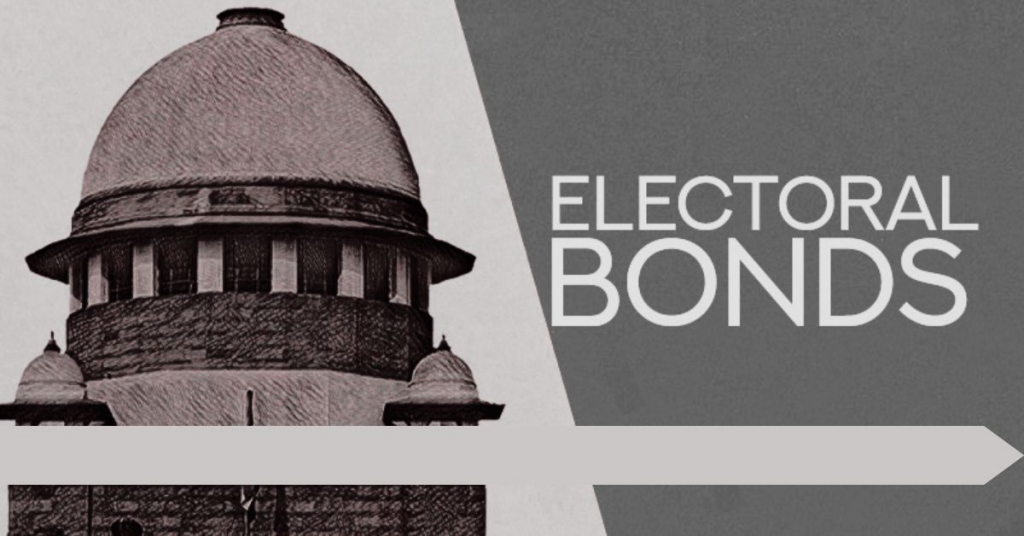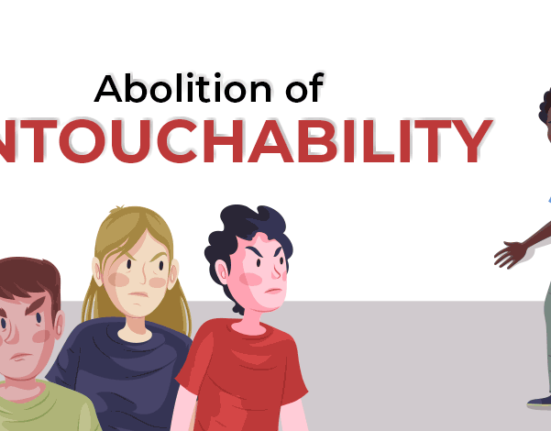This article, “Electoral Bond Scheme Struck Down: A Democratic Advancement?” is written by Shantanu Changmai
Introduction
The Electoral Bond scheme which came into force in the year 2018, has recently emerged as a contentious topic of debate in the Indian political and judicial ecosystem.
- But what exactly is the Electoral Bond Scheme (EBS), 2018 ?
The EBS,2018 is a politico-financial instrument that the current central government introduced in 2018 which allowed the people of India, both individuals and organisations/companies to donate or fund the political party of their choice. There were given certain amount denominations under which the donor could fund their desired party. The denominations were in the value of the multiples of Rs. 1,000, Rs. 10,000, Rs. 1,00,000, Rs. 10,00,000 and Rs. 1,00,00,000 and was handled entirely by the State Bank of India.
Any donor who wishes to fund his /her desired party can go to his nearest branch of State Bank of India and donate his desired amount, in return of which he would be granted a unique alphanumeric code which would connect the donor with the party that has encashed the donation. The entirety of which the SBI was supposed to maintain and keep undisclosed until –
- The central government asks for the disclosure of the data
- The court asks for the disclosure of the same
- Which political parties can avail the benefits of the Electoral Bond Scheme?
Political parties who are officially registered under Section 29A of the People’s Representation Act,1950 and have received at least 1% of the total polled votes in the most recent political elections, either Lok Sabha or Vidhan Sabha are eligible to avail the benefits of it.
Different approaches to the law :
- Government’s approach
New Delhi has stood firm on its stance vis-a-vis the entire judgement and its procedure in the court since the very start. The government stated that the entire scheme was drafted with a wise intent, that is, to reduce and eventually eliminate the illegal political funding that the political parties receive in India and carve out the black money from the system as now, due to the introduction of the scheme, the donors and the parties would be accountable for the donations given and the donations claimed respectively while the State Bank of India keeps a proper track of it.
- Opposition’s stance
While the stance of the opposition on the EBS seemed a little shaky initially, critics argue that it’s the same fear that must have grappled them, later the trend changed. The opposition fiercely argued, highlighting the inability of the party in power to curb the ‘systemic corruption’ in the Indian political ecosystem through the EBS. They further argue that the scheme has rather allowed an easier inflow of money into the political ecosystem which indeed carries an ill motive.
Rethinking the Law and its Hypocritic Nature:
Apart from what the leaders of the nation have to say, it is as important for us to know what the common people of India and critics have to say about the Electoral Bond Scheme.
The critics too have been pretty solid on their stance on the scheme. While many acknowledge the intent of the scheme, they also acknowledge the damage it has caused and the lacunas it presented for a pattern of ‘systematic and legalised corruption’. Some vacuums remained to be filled up and were subject to abuse. The absence of an “upper cap” in the form of a donation to a party by any donor completely negates the primary agenda of the scheme.
The anonymity of the donor further exacerbates the situation as it serves as a ‘free space’ for the donor to vent and escape any type of political or public scrutiny.
- What was being revealed?
On 15th of February, 2024, the Supreme Court stated their judgement on the Association for Democratic Reforms & Anr. v/s Union of India and Ors., and declared the scheme unconstitutional and struck it down. But it was the revelations that became the hot topic of discourse. But why did the court declare the scheme “unconstitutional” when the objective of it was to scrap out the black money from the system?
“The secret of getting things done is to Act !”
~Dante Alighieri
This is what the apex court found while they heard the petition filed. It was found that although the motive of the scheme laid down by the central government is good, there has been no plan of action to reduce or eliminate the influx of black money in the banks of the political parties. On matching the unique alphanumeric code given to each donor on each funding and the party who has claimed it, it was found that although it is the central government who aimed to reduce/eliminate the influx, it was themselves who received the highest number of donations. What made the court and eventually the critics, opposition and the public even more suspicious was that there could be seen a clear trend where the party in power would hand over projects of millions of dollars once they received a hefty donation from the company.
For instance, Navayuga Engineering Company Limited, who were assigned the famously known Silkayara Tunnel Project in Uttarakhand was found donating around 55 crore rupees as electoral bonds between 2019-2022 and then another company named Ranjit Buildcon, who was found donating around 7 crore rupees was handed over with million dollar projects in the cities of Surat, Ahmedabad, Gandhinagar and Vadodara.
In a report by The Quint, it was found that out of the top 30 companies who were donors of electoral bonds, 14 of them had ongoing lawsuits filed against them and were being pursued by the Enforcement Directorate. The critics and the opposition have firmly argued about the waiving off of many such lawsuits from the companies after they donated money to the political parties (primarily to the party in power).
Another major reason why the EBS was indeed suspicious was the illegitimate use of several “shell companies”.
‘Shell companies’ are those companies that do not own much valuable assets, and do not have an active business.
It was found that 33 loss-making firms donated electoral bonds of over 580 crore rupees, 75% of which went to the current central government.
These were enough indicators for the court to acknowledge the failure of the government to stay true to the intent of the law and enough violations to declare it “Unconstitutional”.
Further Assessment by the Court
On the procedure further, the court stated that the EBS,2018 violates the absolute right to information of the voters which is claused under Article 19(1)(A) of the Indian Constitution where it is the duty of the citizens to hold the State accountable for its actions, for which, they have to be provided with accurate information about the proceedings of the government status quo.
The court further encouraged the parties to share relevant data and materials and stated that it would be helpful to serve the rightful public interest in the administration of justice. To further fortify their decision, the court cited two cases.
- SP Gupta vs UOI(1981)
- State of Uttar Pradesh vs Raj Narain Gupta(1975)
Where in both cases, the learned judges fortified the right to information of the voters and reinstated the superiority of the citizens of India and their ability to hold the state accountable for their actions, their entitlement to know about every public transaction.
“In a Government of responsibility like ours, where all the agents of the public must be responsible for their conduct, there can be but few secrets”, the court added.
- Were other laws compromised in the making of it?
The court found that while drafting the EBS and aligning it with its promise of keeping the details of the donor anonymous, several amendments were made accordingly.
To recap, prior to the amendment, Section 13A of the IT Act stipulated that political parties were obligated to maintain records of contributions exceeding twenty thousand rupees. The Finance Act 2017, through its amendment to Section 13A via Section 11, introduced an exemption for contributions facilitated by Electoral Bonds. Consequently, political parties are no longer required to keep records of contributions received via electoral bonds. Section 29C of the RPA required political parties to compile a report detailing contributions exceeding twenty thousand rupees from individuals or companies within a fiscal year. However, Section 137 of the Finance Act, amending Section 29C of the RPA, relieved political parties from including contributions received through electoral bonds in their reports. As previously mentioned, the anonymity of contributors to the public is a fundamental aspect of the Electoral Bond Scheme. Amendments were necessitated in both Section 13A of the IT Act and Section 29C of the RPA to accommodate the requirements of the Electoral Bond Scheme, which mandates contributor anonymity.
Conclusion
In conclusion, we can state that the ultimate purpose was left unfulfilled due to the greed and avarice of the political parties. The scheme served not much purpose to curb the black money but rather paved a much swifter way for it to flow in. The lacunas were left to be filled and were subject to abuse by the parties.
As even the honourable bench acknowledged, the stated intent was wise but the process and aftermath were worse. It was violative of the right to information of the voters which is claused under Article 19(1)(A) and further, the deletion of the proviso to Section 182(1) of the Companies Act permitting unlimited corporate contributions to political parties is arbitrary and violative of Article 14.
Hence, as the decision of the Supreme Court is much lauded, it is necessary for the state to understand the intent and the impact of the judgement, adhere to them rather than attempting to go around it and consider more ways to violate it and uphold the absolute rights of the citizens and the ‘Democratic spirit’.
Works cited
The Hindu Daily – https://www-thehindu-com.cdn.ampproject.org/v/s/www.thehindu.com/data/thirty-three-loss-making-firms-donated-electoral-bonds-worth-582-crore-75-went-to-bjp-data
The VajiraMandravi.com/WhatareElectoralBonds?
The official judgement of the Supreme Court sourced from the official website – 2024 INSC 113-
Supreme Court of India







Leave feedback about this